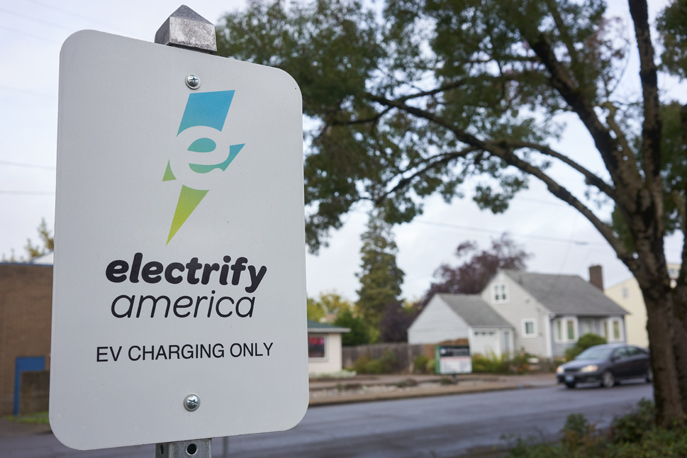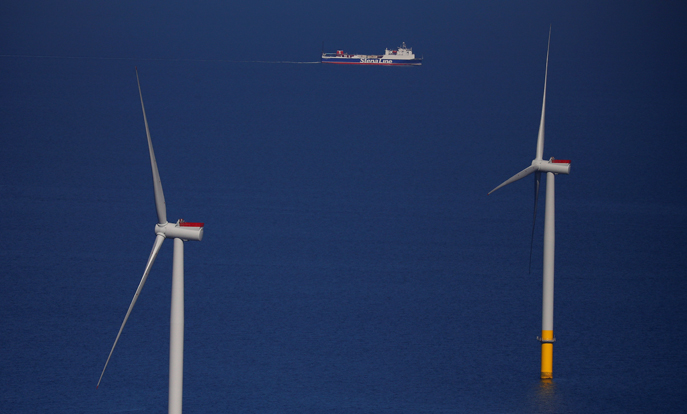Mike Scott reports on how the Glasgow Financial Alliance for Net Zero has its work cut out, with two of America's biggest banks not taking part, and a new CDP report warning that finance firms are underestimating climate risk
Every Earth Day sees a wave of announcements about new sustainability initiatives from companies and investors keen to burnish their green credentials. But the annual deluge was supercharged this year, with Earth Day coinciding with President Joe Biden’s virtual climate summit, seeking to rally greater ambition ahead of the critical COP26 conference in Glasgow in November.
Most significant was the launch of the Glasgow Financial Alliance for Net Zero (GFANZ), chaired by the former Bank of England governor, Mark Carney. The “alliance of alliances” will bring together the leading net-zero initiatives across the financial system under one umbrella, encompassing banks, asset managers and owners, insurers and others to accelerate the transition to net-zero emissions by 2050 at latest. The scheme brings together 160 firms responsible for more than $70tn.

As part of the alliance, 43 banks from 23 countries (with assets of $28.5tn) will form the Net Zero Banking Alliance (NZBA), joining the Net-Zero Asset Owner Alliance and the Net Zero Asset Managers Alliance, meaning that different parts of the investment value chain start to point in the same net-zero direction.
However, two of America's Big Four asset owners, JP Morgan and Wells Fargo, declined to join GFANZ. And the alliance's effectiveness was put into further question this week by CDP. The corporate environmental disclosure non-profit’s first analysis of the financial services sector showed that the emissions of the investments it funds are more than 700 times greater than its own direct emissions. Yet fewer than half of the financial institutions that responded to a questionnaire from CDP, and only 27% of insurers, report actions to align portfolios with a well below 2-degree Celsius world. CDP warned that financial institutions are underestimating the most significant climate-related risks, with a potential impact of over $1tn.

Meanwhile, ShareAction warns that NZBA’s guidelines include no mention of coal and fossil fuel phase out plans; biodiversity loss and deforestation or the just transition, despite these all being crucial to any bank’s climate strategy.
Senior campaign manager Jeanne Martin also says that the targets do not need to cover off-balance sheet activities such as underwriting. “This is madness,” she says. “Major banks provide as much fossil-fuel financing through underwriting as they do through lending.”
John Kerry, President Biden’s climate envoy, warned that the sector would be held to its commitments. He told the Financial Times that “as disclosure of climate-related financial risks increases, banks and other financial institutions are going to be held very much publicly accountable for how they manage those risks. This is serious business.”
Climate commitments please investors
Investors were buoyed by policy announcements at the summit. Mindy Lubber, CEO and president of Ceres, described Biden’s target for a 50% emissions cut by 2050 and proposal to spend $2tn on infrastructure as “one of the biggest investment opportunities in the clean energy future”.
There was also relief over the participation of China’s President Xi Jinping, who agreed to join after Kerry travelled to Shanghai to hammer out, with his opposite number Xie Zhenhua, a joint U.S.-China agreement to cooperate on climate change.

Given that the two countries emit almost half of global greenhouse gases, the statement is seen as presaging a wave of low-carbon investment in renewable energy and nascent sectors such as energy storage, carbon capture and hydrogen.
Canada, Brazil and Japan increased their ambition. Meanwhile, the EU legislated to increase its ambition to cut the bloc’s emissions by 55% by 2030, from 40% previously announced, though the publication of its taxonomy for sustainable investment prompted protests from environmental NGOs (See Protests over sustainable taxonomy muddies EU climate leadership)
Advocacy and engagement
U.S. companies are facing the biggest number of ESG-related shareholder resolutions for four years as investors seek to understand how businesses handled the pandemic.
The Principles for Responsible Investment is pushing for leaders at this year’s G7 and G20 summits to make sustainable finance a central focus of their ministerial meetings as part of their core agenda. The PRI sees this year’s meetings as a prime opportunity to push sustainable finance as the UK and Italy are co-hosting COP26, while the UK will host the G7 meeting, and Italy will welcome G20 leaders.
An $11tn investor coalition is calling on some of the world’s biggest banks to stop funding carbon-intensive projects and increase their green lending to align with net-zero targets. The group, co-ordinated by the Institutional Investors Group on Climate Change (IIGCC), also calls on the banks, including Bank of America, Citigroup, Goldman Sachs, HSBC and JP MorganChase, to work to develop a benchmark to assess alignment with the Paris agreement targets.
In Europe, Aviva Investors reported a 16% increase in the number of resolutions it voted on, with remuneration the top issue. But the firm has also extended its engagement to governments, writing to finance ministers and central bank chiefs in 21 countries, from Brazil to the UK, highlighting the important role of sovereign debt in global efforts to address climate change.

Aviva has also set out a series of proposals and recommendations to G7 and G20 nations to help the global financial system to tackle the climate crisis in an effective and cohesive way. These include creating an International Platform for Climate Finance and ensuring that the hosts of the G7 and G20 are aligned with the COP climate conference co-hosts during future stocktakes, which happen every three years, and the five-yearly reviews of progress of the Paris Agreement.
The pressure on oil and gas companies continues, with engagement group Follow This failing to agree on a joint climate resolution with BP. Mark van Baal, founder of Follow This, said: “Bluntly, BP’s message to shareholders is: ‘we know you expect us to act in the climate emergency, so we have promised to reduce emissions in the distant future while we implement 'new' strategies that will increase emissions in the next decade’.”
Investor pressure has also forced change at Toyota, which said it would review its lobbying activities and be more transparent on how it is tackling climate change after it was criticised for supporting a Trump administration attempt to stop California from setting its own fuel efficiency rules.
Sustainable bond issuance soars
JP Morgan, Bank of America and Citi have all announced trillion-dollar commitments; JP Morgan to spend $2.5tn on sustainable finance initiatives by 2030, while Citi and BoA have committed to invest $1tn.
Another couple of financial behemoths, Temasek and BlackRock, are to invest $600m in startups devoted to carbon reduction in areas such as electric and autonomous vehicle technologies, battery storage, grid solutions and emerging fuel sources.
Following a record first quarter, the sustainable debt market is also expected to exceed the $1tn mark, according to SEB, driven by increased issuance of green and social bonds and a surge in sustainability linked debt. Sustainable bond issuance has already exceeded the total for 2020, and sustainability linked loans have doubled.

One recent example is a €1.35bn sustainable linked guarantee facility signed by BBVA and Enel, which is linked to Enel’s share of renewable productive capacity.
The green bond market continues to deepen, with developments ranging from a €500m green bond from Novelis Sheet Ingot, the world’s largest recycler of aluminium, to a new Sovereign Green Bond fund launched by NN Investment Partners.
There were new ESG-focused ETFs from Vanguard and BNP Paribas Asset Management, while VanEck launched the Vectors Hydrogen Economy ETF, focused on companies that generate at least 50% of their sales in the hydrogen economy.
The market would grow even more rapidly with the development of consistent green standards and better transparency, says Fitch Ratings.
Europeans lead in climate asset allocation
While global investors are virtually unanimous in acknowledging escalating climate risks, more than 40% have taken no action to address this within their own investment processes, according to a report from U.S. asset manager PGIM. However, there is a strong regional gap; when asked if climate change was a meaningful factor in asset allocation decision-making, 85% of European investors said it was significant, against 57% in Asia-Pacific and just 25% in the U.S.
Given recent policy announcements from China, the UK, Japan, South Korea and the U.S., this seems likely to change, backed by the fact that there has been a significant change in financing costs for energy projects. New research from Oxford University shows the falling cost of funding renewable energy projects (20% cheaper for solar and 33% for offshore wind in 2015-20 compared with 2010-14) while coal spreads have increased sharply, particularly in developed countries. Financing costs for oil and gas have not changed as much, but the sector will be cautious in light of what has happened to coal in recent years.
In addition, share offerings by fossil fuel companies have lost 20% in value over the last decade and investors are shifting finance towards a low-carbon future as the shares of clean energy companies have outperformed their benchmark by 54%, CarbonTracker said.
It is no surprise then, that the spotlight on bank financing of carbon-intensive companies continues, with a report from DeSmog revealing that 61% of the directors of 15 major European banks have held, or currently hold, positions with polluting organisations.

And InfluenceMap highlights that BlackRock and Vanguard have some way to go to fulfil their new commitments. However, BlackRock’s expansion of its climate engagement focus to include Paris-aligned business models suggest that it is changing its stance more rapidly than its rival.
Social issues continue to rise up the agenda. ShareAction’s Workforce Disclosure Initiative saw 141 companies report this year, up 20% from 2020, with new responses from companies including Nike, Vodafone and Santander. However, many companies are unable to back up their workforce policy commitments with the data necessary to implement them.
For example, 94% of companies commit to eliminating modern slavery from their supply chains, but 10 of these companies could not provide any description of their supply chain.
And research from BNP Paribas Asset Management shows that companies with the most gender-diverse executive teams outperformed the least gender-diverse by 48%. Shareholder support for diversity jumped seven-fold between 2003 and 2018.
Yet Arjuna Capital and Proxy Impact’s Racial and Gender Pay Scorecard found that fewer than one in 10 firms was A-rated, while more than half scored an F, suggesting that despite increased investor pressure on the issue, many companies still have a long way to go.
Protests over sustainable taxonomy muddies EU climate leadership
The EU last week legislated to increase its ambition to cut the bloc’s emissions by 55% by 2030, from 40% previously announced. But more significant for investors was the publication of the EU’s Sustainable Finance Taxonomy, which will have major implications for sustainability investment in Europe, although contentious decisions on whether to include gas and nuclear power have been deferred for now.
Daniel Nevzat, government relations manager at global law firm Norton Rose Fulbright, described it as “a vital step towards helping investors identify what is and is not green, and in turn tackle so-called greenwashing”.
But five environmental and consumer NGOs pulled out of the expert group that is advising the Commission on the taxonomy over the decision to include forestry and biomass, cargo ships burning bunker fuel and buses running on fossil gas in the taxonomy, which will cover 40% of the EU economy. They accused the Commission of failing to be guided by climate science, and bowing to interference from member states.
Luca Bonaccorsi, director of sustainable finance at Transport & Environment (T&E), said: “The taxonomy law was supposed to be the gold standard of sustainable finance. But the result has been the greenwashing of dirty cargo ships, gas buses, and logging and burning trees. Environmentalists will not come back to the process until the Commission comes back to science.”

The European Commission also published proposals for a Corporate Sustainable Reporting Directive, under which sustainability and financial information would be given “comparable status”, with an explicit requirement for “public reporting on both sustainability factors affecting the company and how the company impacts on society and the environment”.
The directive was welcomed by the Global Reporting Initiative’s chief external affairs officer Peter Paul van de Wijs, who said: “This legislation would introduce mandatory requirements for some 50,000 companies to disclose the full range of their impacts on people and planet, which is essential if the EU is to ensure meaningful progress in achieving the Green Deal.”
However, a group of 13 NGOs, including T&E, ShareAction, E3G, Global Witness, Oxfam, WWF, and the Business & Human Rights Resource Centre wrote a letter to the Commission expressing concerns that companies in high-risk sectors such as mining are excluded, while listed small and medium enterprises will be exempt for the first three years of the new law.
Separately, New Zealand has become the first country to make finance groups report the impacts of climate change on their business by law.
This article appeared in the April 2021 issue of The Sustainable Review: See also:
Policy Watch: Biden climate summit long on vision but short on ‘how’ of getting to net-zero
Brand Watch: Corporates back global initiative to scale finance for forests
Brand Watch: Xinjiang forced labour allegations put brands and investors in hot seat
In focus: Can clean energy giant Spain deliver on EU’s net-zero ambition
Analysis: How China goes on climate, so goes the world economy

